We arrived at the Kordin Fire Station shortly after 6.30am, just as the shift handover was about to start. We were going to spend 12 hours with one of the station’s three 13-man shifts.
The Kordin Fire Station – one of five CPD stations – is Malta’s biggest, covering half of the island. As a result it is also the busiest. Yet this was a quiet day by CPD standards, probably because we visited during the Santa Marija week, when businesses are on shutdown and many are abroad, or in Gozo.
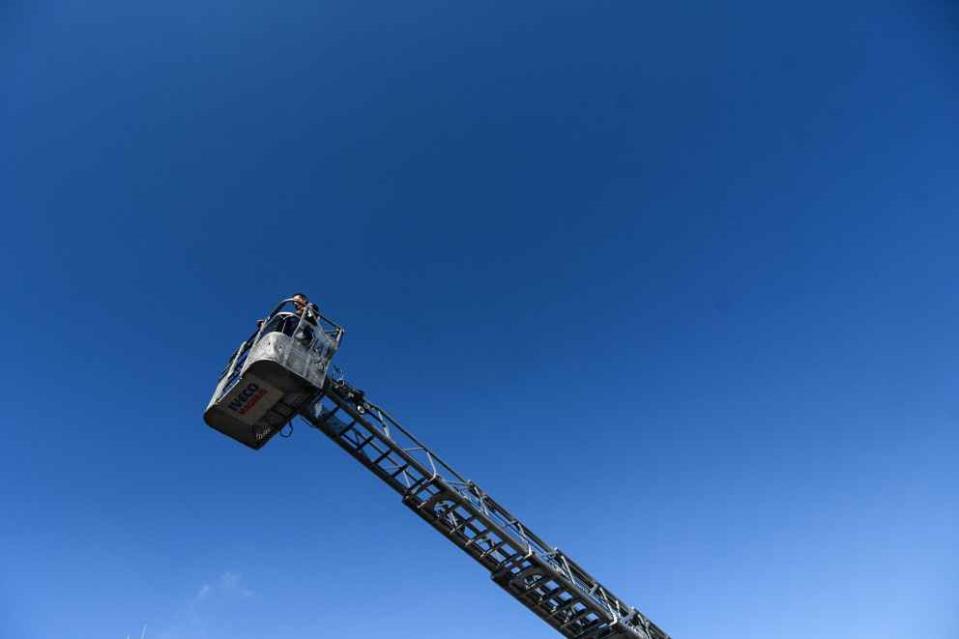
Station Officer (SO) Anthony Portelli is the man running the show here at Kordin but with 25 years’ experience under his belt, he will soon be handing over to Station Officer Charles Grima. Both command the respect of those under them, yet bot are very much part of the team they lead, ‘one of the lads,’ you might say.
Ready to go at a moment’s notice
Every day starts with the handover process – the incoming team is briefed about the previous day’s incidents. Yesterday was an uneventful day, says SO Portelli. “There was a young girl whose foot got stuck in a culvert, two fuel spillages, a mobile toilet fire, which was probably a case of arson, and a man who locked himself out on a balcony.”
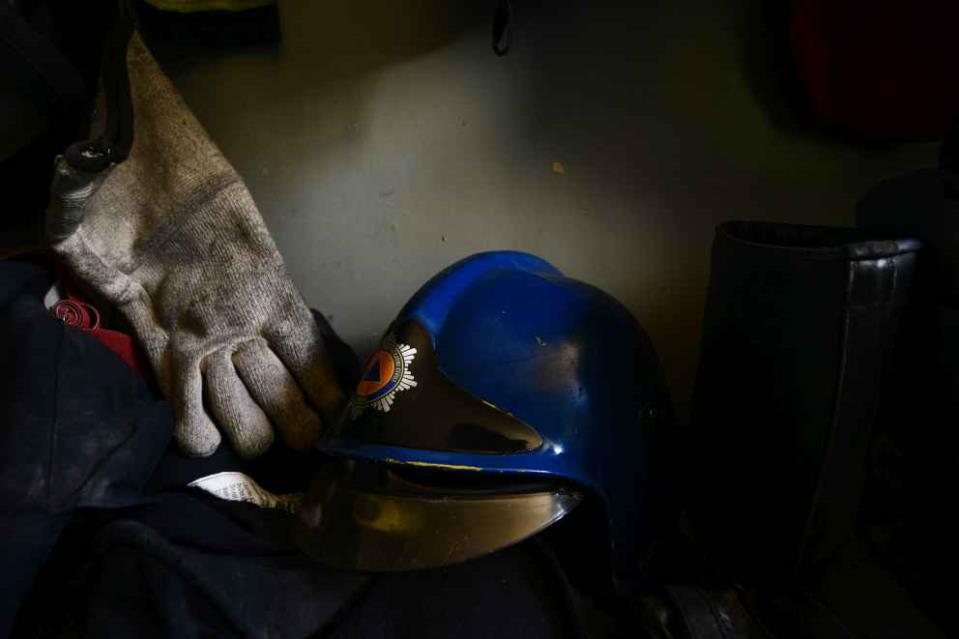
Next comes the daily vehicle check. There are 13 fire and rescue vehicles stationed at Kordin, including a turn-table ladder truck which, at 37 metres in length, is the CPD’s highest. There are also smaller fire engines, water carriers and vehicles that are more suited to dealing with road traffic accidents, or RTA’s, as they are referred to by the firemen.
SO Portelli explains: “We do this every morning. We check everything from the truck sirens, to the water pumps to the hydraulic cutting equipment. Everything must be in full working order. Any issues are reported to me immediately and the necessary steps are taken so that our fleet is always in tip top shape.”
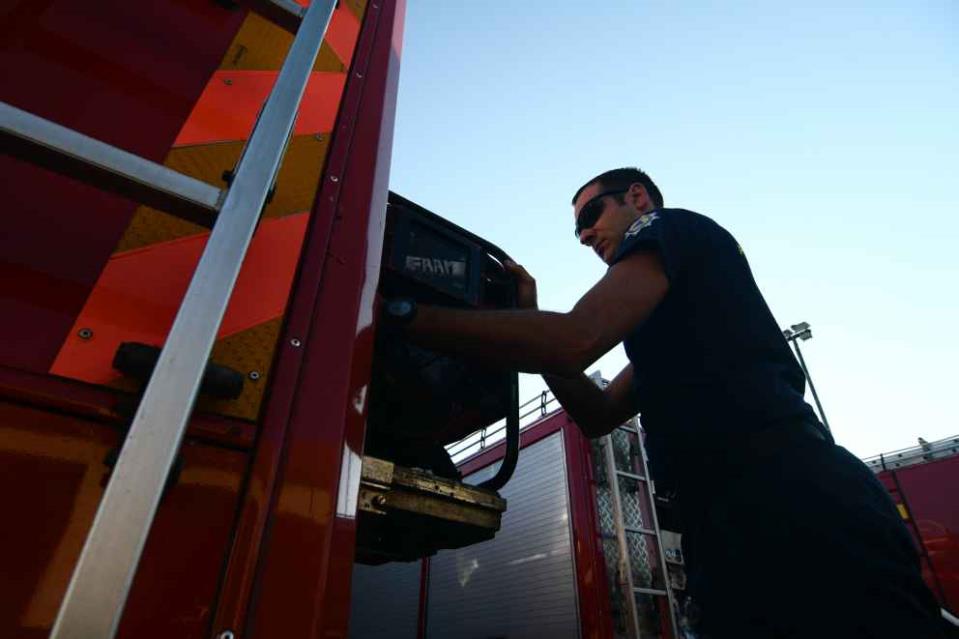
Station Officer Charles Grech explains how the vehicle roster rotates; giving all shift members the chance to familiarizes themselves with the different vehicles. “Today you might be placed on fuel spillage duty but you may be on grass fire duty the next time round,” he explains, hence the need for all officers to be familiar with all pieces of kit.
The most important of them all, SO Portelli says, is the Breathing Apparatus (BA). “This is our life, our most important tool,” he says. “The person checking the equipment knows that an oversight could cost the life of one of his friends, so there is no joking around with this kit.”
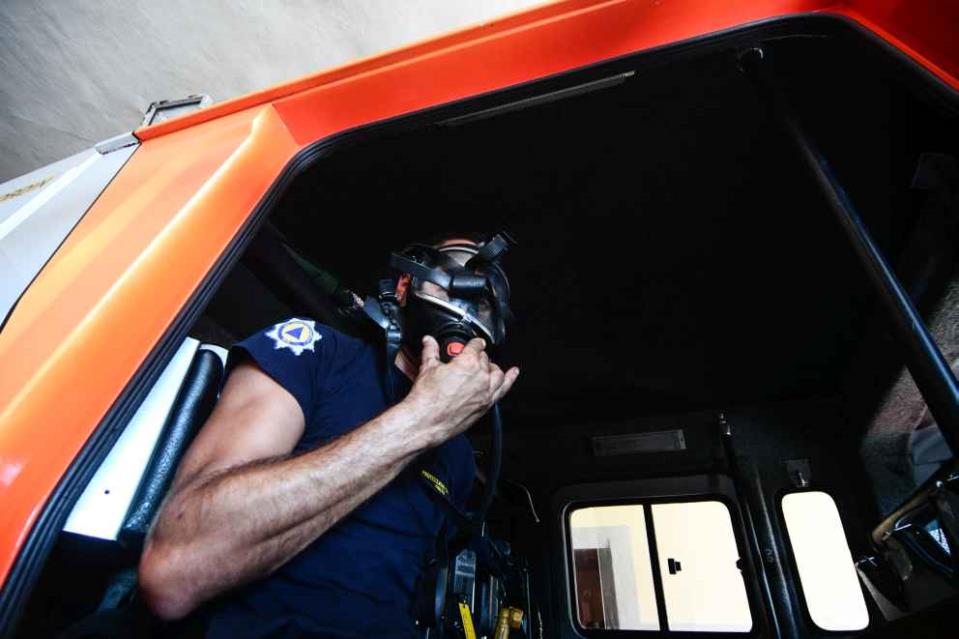
He explains that firemen using the equipment can never enter a burning building alone. “It has to be a team of at least two, with two more on stand-by outside. We train hard using this equipment, especially on how to read the gauge which tells you how much air you have left. The mask is also an essential part – it is your lifeline. Many times we go into a building and have to feel our way round with our hands and feet because of the pitch black smoke.”
Fire dogs
By this time we have been introduced to Gina, the station’s three-legged fox terrier, and Butch, a playful puppy of the same breed. The firemen love the dogs to bits and everyone hands them treats or a piece of whatever they may happen to be eating.
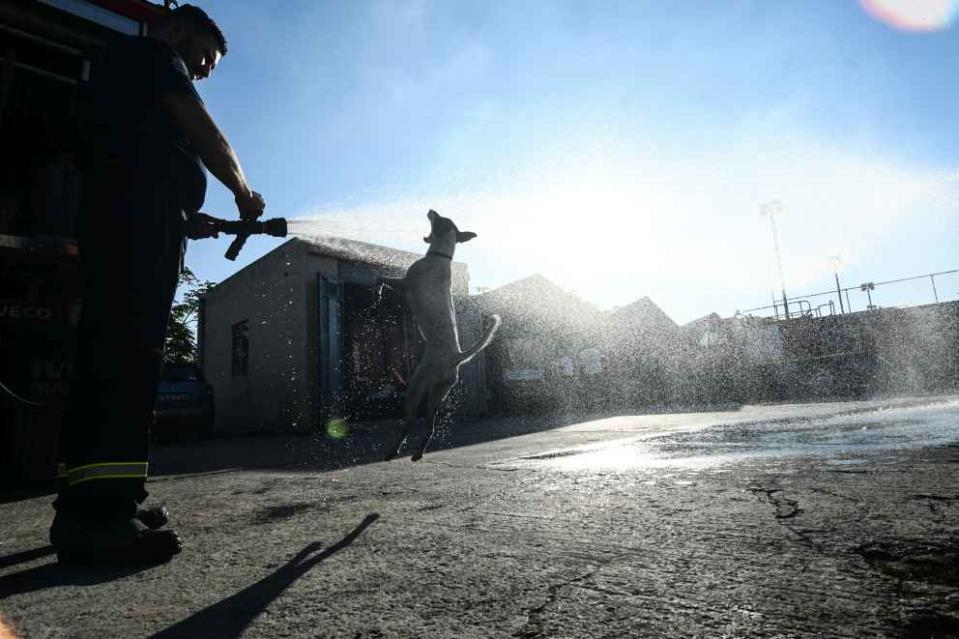
Gina was found severely injured a few weeks back, probably run over by a car, and had one of her hind legs amputated. “The whole thing cost us around €450 but we all chipped in and covered the vet bill,” says SO Grima.
“And we took Butch in after our previous dog died. He used to belong to an old lady who could not take care of him.” We quickly found out why – Butch is, to say the least, very playful, inquisitive and over friendly. He follows the AROs wherever they go inside the station and climbs onto the fire trucks during the morning checks. He also gets a daily shower as the firemen try out their fire hoses. Then it’s off to sleep on the sofa for a couple of hours before he starts pestering the men for affection once again. But they love him and he lives like a king among them.
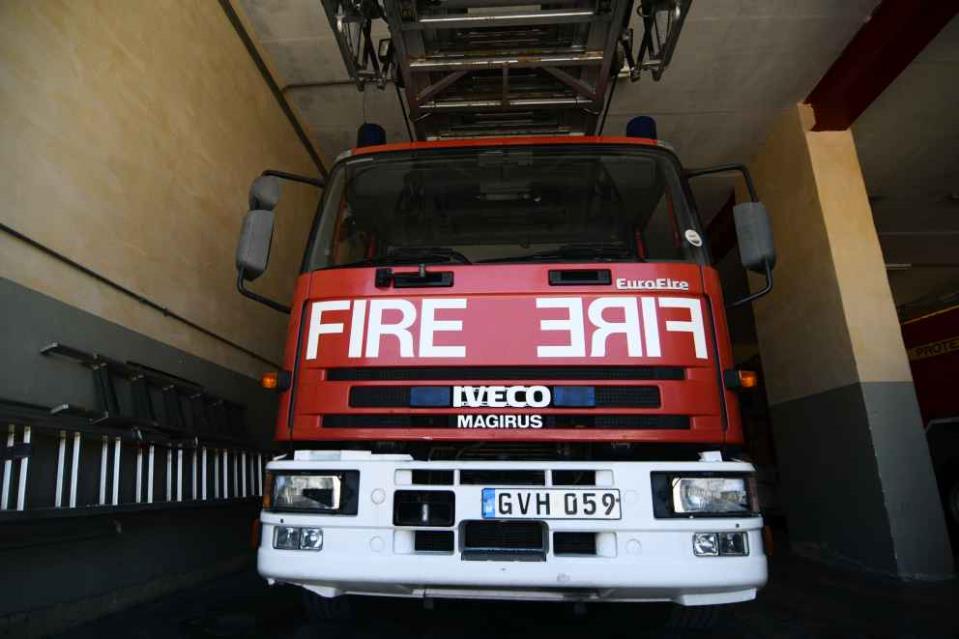
Killing time
The dogs also help the CPD officers pass the time, for as we found out, some days are all about waiting for a call that might not come. The officers also watch TV, sleep, cook, discuss, fool around and clean the base to kill the time. When they’re not busy with paperwork, their superiors sit down with them, make jokes and pass on their experience.
We took that opportunity to get to know some of them better, to understand what makes a fireman.
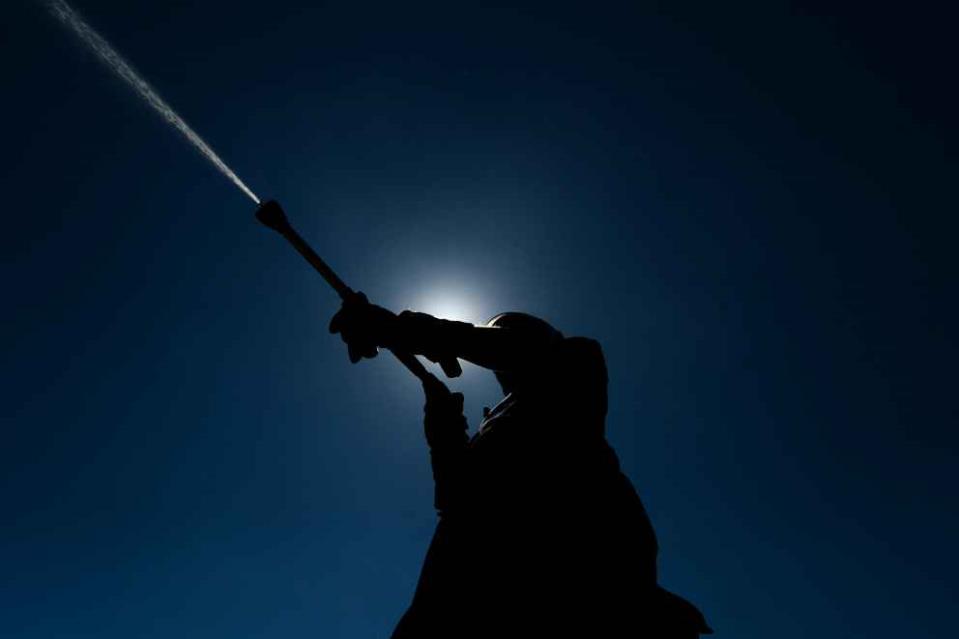
Saviour Cassar, 31, has been a full-time CPD member for the past year. Like many in this job, he was a volunteer with the department for many years. “I used to work as a driver for a charity and as a monti hawker, but this was always my dream,” he says. While it may sound cheesy and cliché, all of the firemen we spoke to genuinely love their job, something not all of us can profess. “I look forward to coming to work,” Mr Cassar says, explaining that CPD officers work a 24-hour shift, followed by a day of rest and a day off. “You cannot skive, you have to respect your teammates and you have to be a team player. There has to be a bond, and full trust between us. We depend on each other.”

Mario Muscat, 34, also became a full-time fireman last year, after serving as a volunteer for 7 years. “This is my second family and my colleagues are my brothers. We live, eat and sleep together.”
ARO Muscat lists the rescue of a man and his dog from an underground cistern in Pembroke as one of the most memorable experiences so far. He has also seen his fair share of accidents, some of them fatal. “We have to perform our jobs to be best of our abilities but we also have to be human and treat the victims, including the dead, with dignity.”
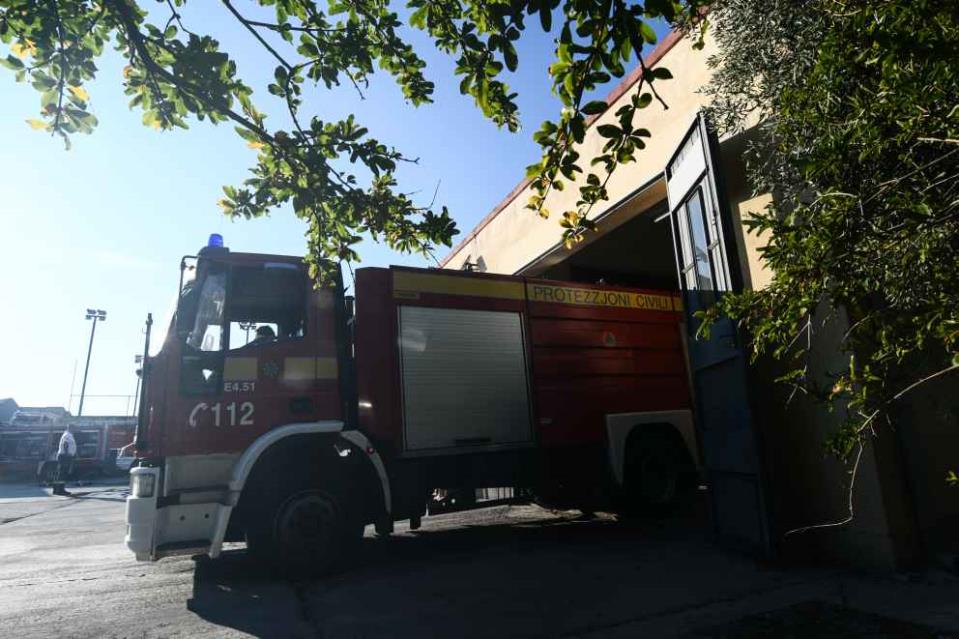
He says firemen do not expect much, but a thank you from those saved from peril is always appreciated. “People often complain and tell us that we took our time to get there. I understand that when you’re in an accident every minute feels like an hour. But it would be nice to be appreciated, and unfortunately it does not happen often. Still, this is the best job in the world, my dream job.”
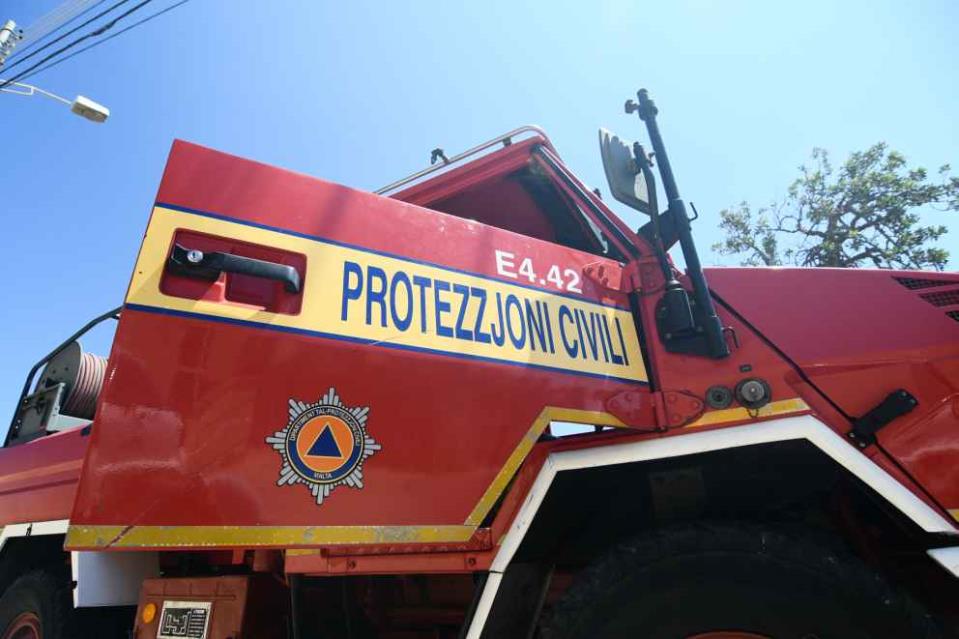
A quiet day
The first call comes in at 9:30am – a fuel spill. The Land Rover, carrying absorbent materials is already out on patrol and is dispatched to the site. “A simple fuel spillage can be quite dangerous,” Leading ARO David Piscopo explains. “It could cause a potentially fatal road accident.”
Back in the lounge/kitchen area SO Chares Grima tells us that the Kordin station had already received 302 calls since the start of the month (this was 16 August). “Today is relatively quiet,” he says, adding that the department was recently quite busy with festa duties. “We have to have a fire engine on stand-by when fireworks are being let off, you see.”
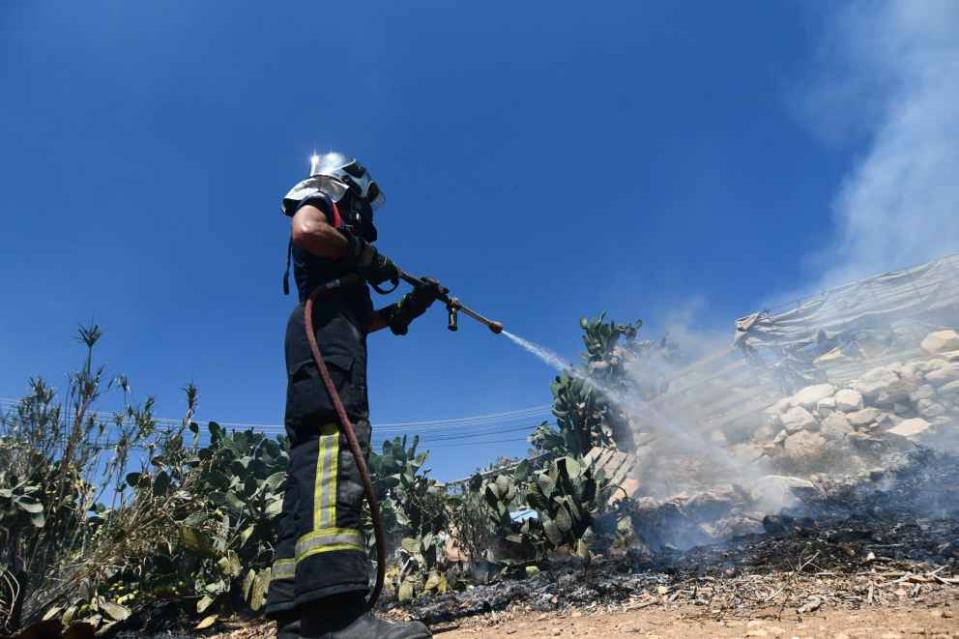
By now we are joined by Martin Aquilina, who has been a CPD volunteer for 17 years. Mr Aquilina, who hopes to join the department on a full-time basis someday, works two or three 12-hour shifts every week, and does not get paid a cent for it. He does the exact same duties like the rest of the guys. Always seeking adventure, Martin was in the scouts at a younger age – something he says instilled in him a sense of discipline and responsibility – and more recently was part of an emergency and rescue NGO.
Training exercise
The Station Officers, realising that the day is far too quiet, organize a training exercise using the turn-table ladder. The aim is to get a casualty off the garage roof using a stretcher mounted at the top end of the extendable ladder. The exercise is carried out flawlessly and the younger, less experienced crew members take the lead. “It is much more difficult when you are in a real-life situation, working six-storeys above street level and have to carry a 100 kilo person over the side of the roof and onto the ladder,” SO Grima explains.
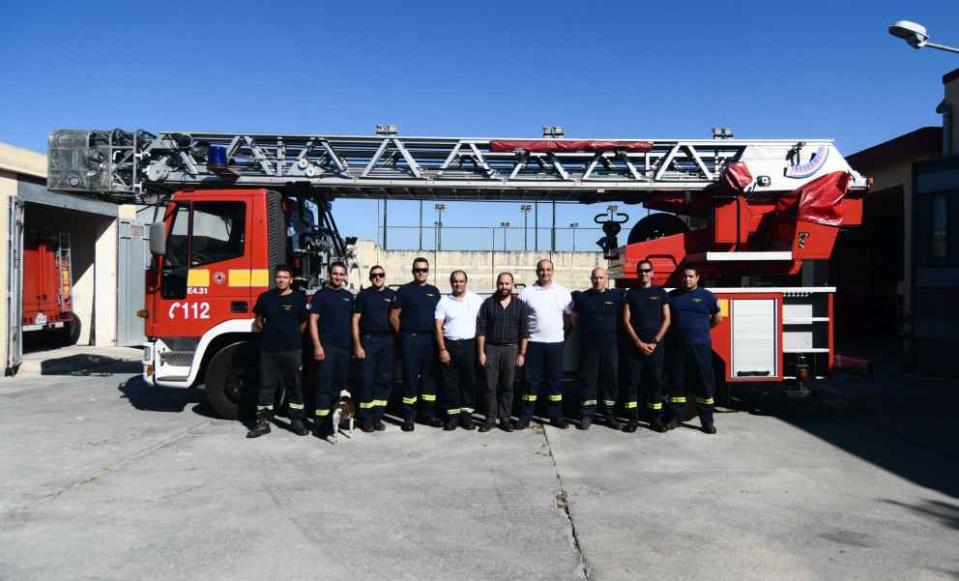
A couple of minutes later another call comes in – a grass fire in San Gwann. A small fire engine with a crew of two and our videographer is dispatched within seconds. When they get there, the fire is controlled in a few short minutes.
A ‘thank you’ would be nice
Back at the station the discussion turns back to the subject of public recognition, or rather the lack of it, for the work carried out by firefighters. LARO David Piscopo says, “I have been doing this job for 25 years and there was only one instance where a person came to thank me.”
But ARO Cadrick Tabone’s story has a different ending. “It was my first time out on an RTA. There was this horrible car crash last year – we found an old lady and her grandson in the crushed car. They were badly injured and we had to cut open the car to get them out. I went to visit the woman in hospital only to be informed by a nurse that she had succumbed to her injuries.”
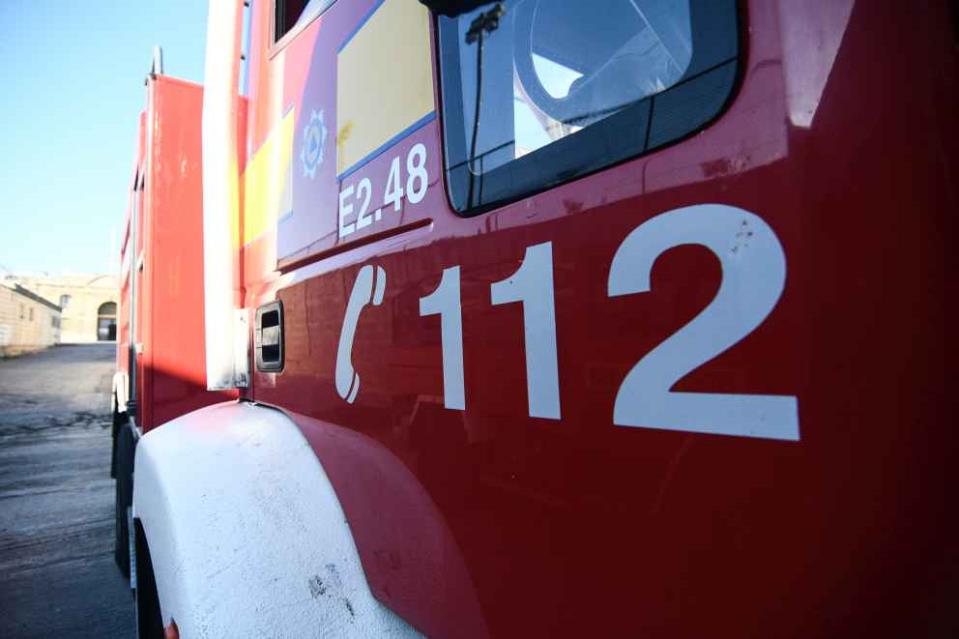
A couple of months later, a relative of the woman visited the station, bringing with him a ‘thank you’ cake. For the CPD officers, this simple gesture is enough to make their jobs worthwhile.
Help us help you
Anthony Zarb, a CPD veteran of 23 years, says another way people could make a firefighter’s job easier is to give precise information about the location of the incident. “Many times people fail to tell us that they have gas cylinders in the house. Keep in mind that we go into a burning building practically blind and have to feel our way around with our hands and feet. There were many instances where people told us there were no gas cylinders in the house only for us to find three or four right next to the fire. We could be walking right next to a potential bomb without even realizing. So please, just be straight with us and warn us of any dangers we might encounter.”
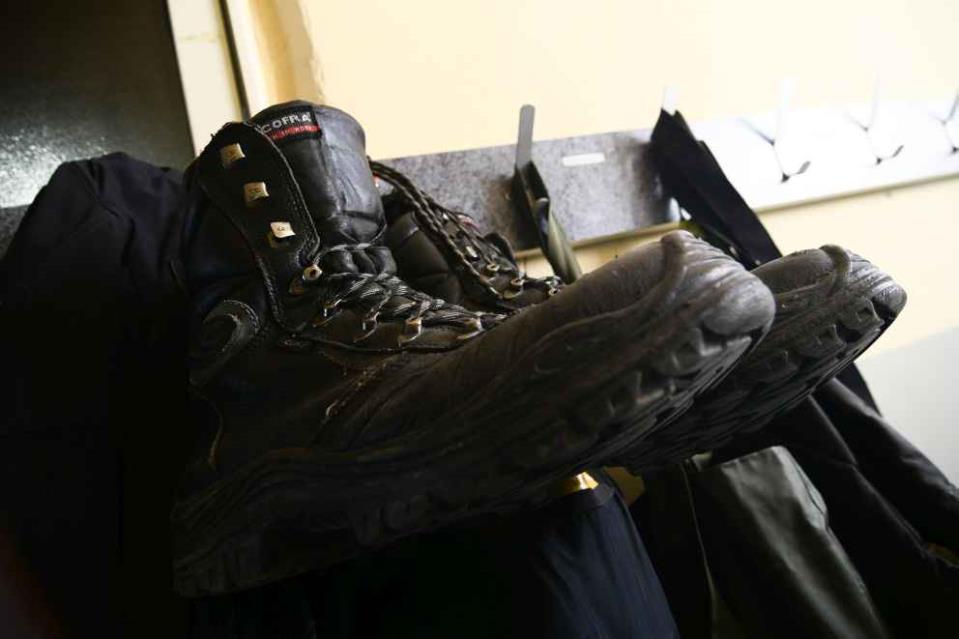
Asked what his worst experiences were, Mr Zarb says chemical fires are probably the most dangerous to tackle. He mentions two incidents, the Trimite factory fire in 2005, and the Drop Chemicals factory fire in 2011, as among the scariest incidents he’s been involved in. On one occasion, his fireman’s helmet split in two because of the heat.
The station’s radio crackled again at around 3.30pm. Another grass fire call, this time in Xghajra. A two-man crew headed out. The rest waited patiently for a more urgent call. The smell of toast wafted around the station and Butch chewed on an empty soft drink bottle.
Today was a quiet day. Tomorrow could be a different story.
Pictures and video: Jonathan Borg